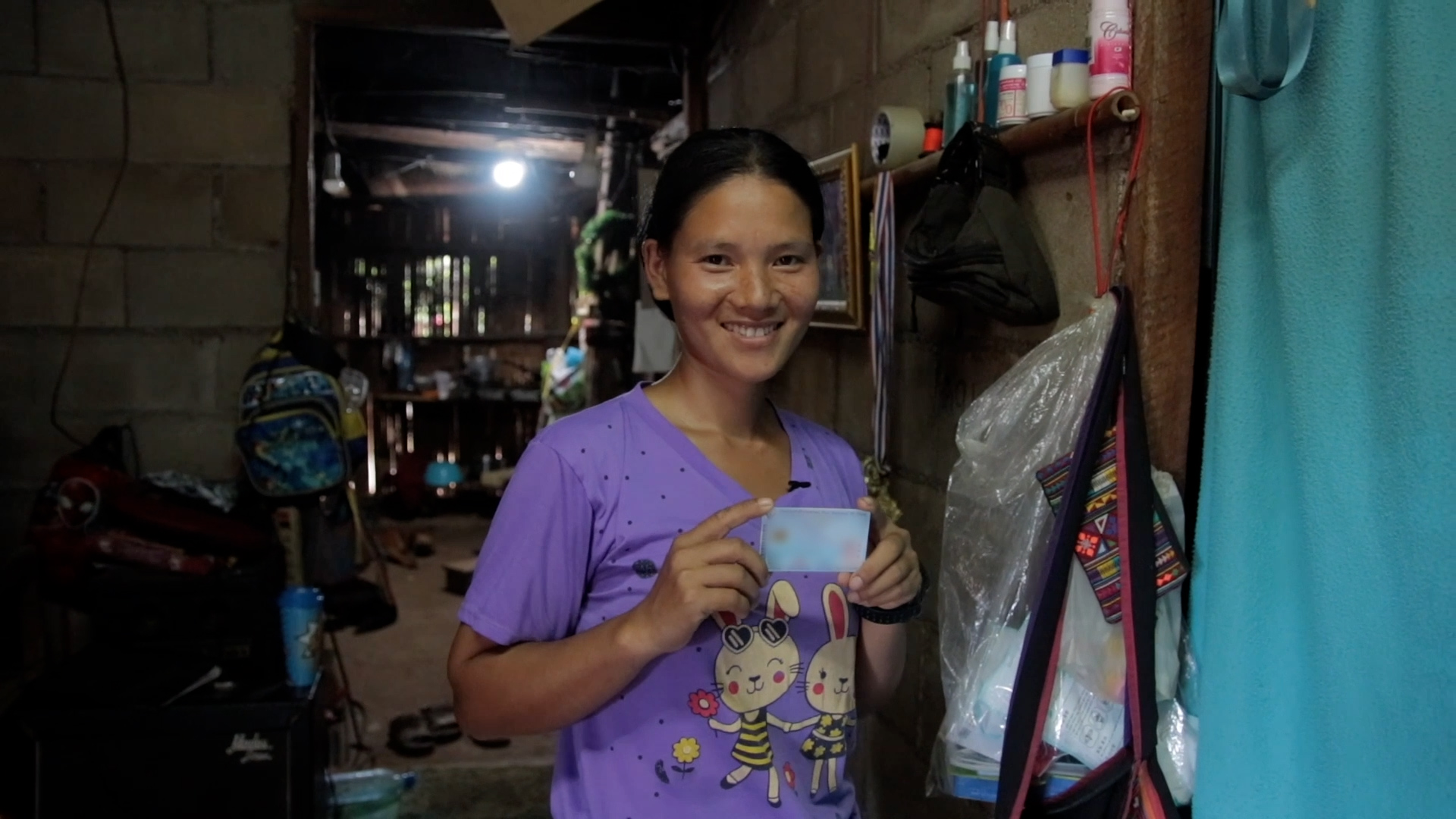Iraqi boy, far from home, gets a chance for a taller future
Iraqi boy, far from home, gets a chance for a taller future

BANGKOK, Thailand, March 20 (UNHCR) - When little Melaad Saeed Habib asks when he will grow up, it's not just the impatience of a 10-year-old itching to be a teenager. He means it quite literally - Melaad has a hormone deficiency that has left him weighing just 18 kilogrammes and as short as his five-year-old brother.
In search of the medicine he needs to be able to grow normally, his mother took him on a daring trip last year from their home in Iraq to Thailand, where two of his aunts live as asylum seekers.
On Tuesday, the gamble paid off when Pfizer Global Pharmaceuticals donated a six-month supply of the growth hormone Genotropin to Melaad, who will need to continue the medication for five years.
"It's a miracle," said Melaad's sobbing aunt, Jacklen Yakeen Bahho, as Pfizer (Thailand) Ltd.'s Public Affairs Director Anutra Sinchaipanich handed over the medicine to UNHCR on behalf of the family.
"Thank God, thank God, thank God," echoed his other aunt, Maisoon Yakeen Bahho, also in tears. "When you have no hope and then there's a tiny bit of hope, you feel very good." Melaad just smiled shyly at being the centre of attention in Pfizer's Bangkok offices.
Melaad, who is under the temporary protection of UNHCR, received a scholarship to an international school in Bangkok, where he takes special English lessons and studies regular third grade subjects. "My friends are the same height as me," he said, "but a different age. They are [two years] younger than me."
Though Melaad is beginning to speak English, his Aunt Maisoon does most of the talking for him, telling of the cruelty he suffered at the hands of his much bigger contemporaries in Iraq.
For several years, Melaad's parents, Iraqi Christians from the Assyrian minority, had been concerned that he was not growing properly, but they could not get a scientific diagnosis of his problem in Iraq. Having heard of Thailand's growing reputation for excellent medical care, they arranged an invitation to the country from Bumrungrad International Hospital.
Braving many obstacles for a woman travelling without a male chaperone, and speaking neither Arabic nor English, Melaad's mother, Aflen, made it to Bangkok last July. But she was able to stay only two weeks because her husband is disabled and her youngest son had been hit by a car and was in a coma.
"It was a terrible choice for her," said Maisoon, "to go back and suffer with her children or stay here and wait for the UN." In other words, to hope she would be granted refugee status, an uncertain and time-consuming process.
"She said, 'I can't sleep at night, I always hear my kids [Melaad's two brothers] crying,'" Maisoon related, adding that Aflen was thrown in prison for three days without food or water on her return to Iraq.
That left Melaad alone in Bangkok with Aflen's sisters, his aunts, who quickly found that the long-sought-after medicine was beyond their means. Enter Jennifer Westfall, a public health nurse and consultant to several refugee organisations, who took up their case and persuaded Pfizer to help.
Although they clearly dote on Melaad, Maisoon and Jacklen admit they can't replace his parents. "He's always asking, 'When will I grow, when will I see my family?'," Maisoon said.
For now, at least, the first part of the question is answered. Doctors say his height should increase by one centimetre a month for the next year, and a bit less in the years after that if he continues treatment.
By Kitty McKinsey in Bangkok, Thailand







